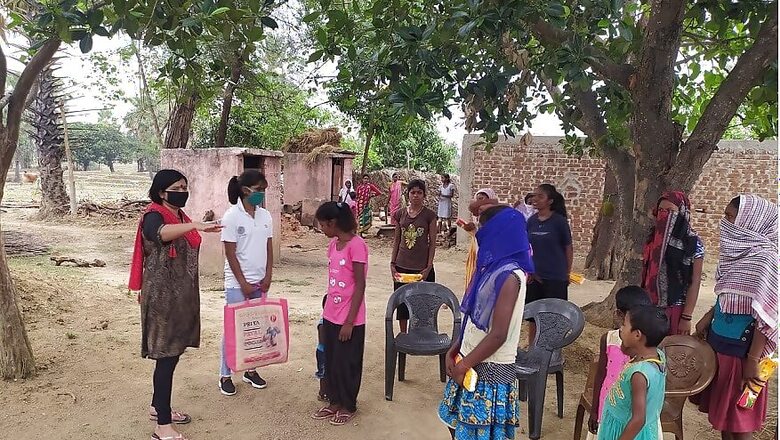
views
Ranchi: Shanti and Parmila Baski, class IX students at a government school in Jharkhand's remote Godda village, will be using cloth this time during their periods. They were earlier using sanitary pads during menstruation, which was provided to them by the government through the school administration. But that's no longer the case during the lockdown.
“We can sacrifice other things, but periods don’t stop because of a pandemic. Since our school is closed, we haven't been provided sanitary pads and thus we are constrained to use cloth this month,” says Shanti.
Female students of classes VI to XII in government schools receive sanitary pads under a central government programme called Kishori Shakti Yojana. Even former Jharkhand chief minister Raghubar Das in 2016 had launched the Sakhi scheme to improve personal hygiene among girls who cannot afford to buy sanitary napkins.
Adolescent girls from poor, tribal and Pahadiya communities, who reside in the remote and Naxal-overrun areas of the state, depend on schools for basic amenities like sanitary pads.
Ever since the lockdown has been announced, the Jharkhand government has been trying to ensure food and essential commodities reach everyone, while sanitary napkins have not been added to the list.
States like Telangana and Karnataka have marked sanitary pads as essential goods. But not Jharkhand.
Similarly, women who are stuck in coronavirus hotspots like Hindpiri are facing difficulties in getting sanitary pads. Hindpiri councillor Sajda Khatoon said they have been distributing rations in different localities of the are but women from these parts also ask for the napkins.
Joba Majhi, the state's women and child development minister, was not available for comments on the matter. BJP leader Louis Marandi, who held that portfolio earlier, suggested that the government use the same system which it is using for food distribution to resolve this problem.
Bandana Dubey, a social worker in Godda district, says she has been approached by almost a thousand girls so far for providing sanitary napkins. “Everybody knows that 90% of girls in rural areas of Jharkhand are deprived of sanitary napkins," she sayas. "It is through government schools that these young girls in the past two to three years have got into this habit of using sanitary pads. But this lockdown has forced them to use unhygienic materials that may cause leaking and infection, putting their health at serious risk."
Bandana says she, in her personal capacity, has distributed over 3,000 sanitary napkins.




















Comments
0 comment